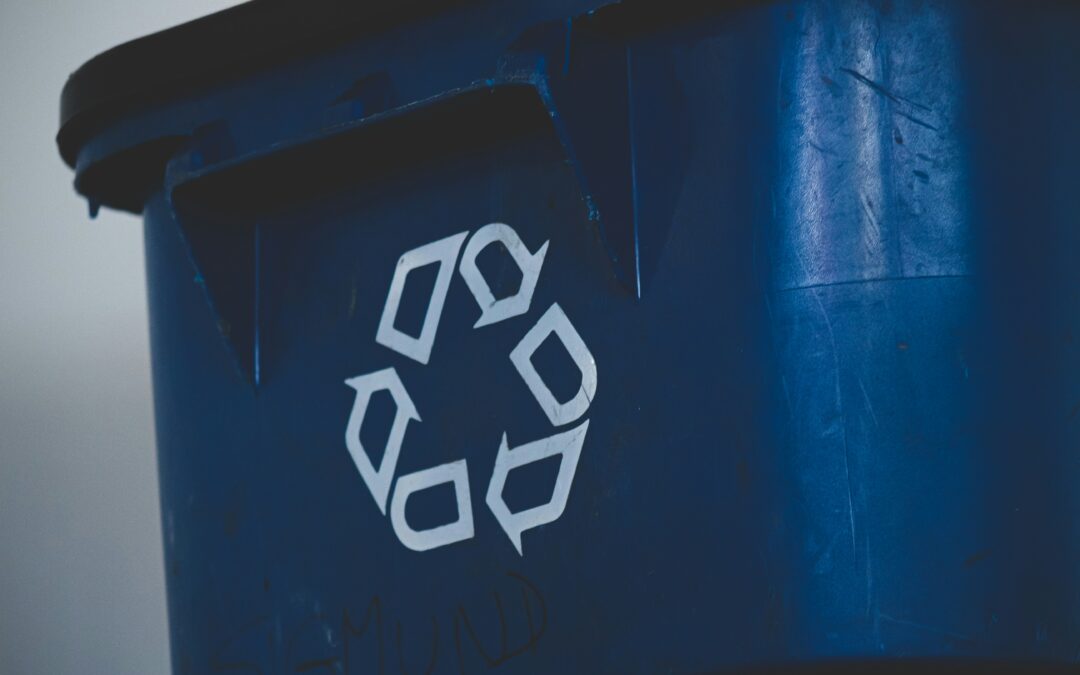____________________________________________________________________________________________________________________
TL;DR
Zero waste in the Philippines means reducing, reusing, and recycling materials to keep them in circulation and out of landfills.
- Helps fight plastic pollution and conserve natural resources
- Reduces waste management costs for cities and businesses
- Creates green jobs and supports sustainable local industries
- Builds cleaner, healthier, and more resilient communities
____________________________________________________________________________________________________________________
Waste is a growing problem in the Philippines. The country produces over 61,000 tons of garbage every day, much of it made up of single-use plastics that end up in landfills, rivers, and coastlines. From overflowing dumpsites to polluted waterways, waste is reshaping communities and ecosystems.
Zero waste provides a smarter, more sustainable framework for reducing, reusing, and redesigning how we consume resources. Adopting a zero-waste culture benefits individuals, businesses, and governments alike. It cuts costs, protects the environment, and builds systems that last.
This guide introduces zero waste 101: what it means, why it matters, and how you can start making a difference in your home, business, or community.
Zero Waste 101 for Beginners
Zero waste is a philosophy and strategy aimed at minimizing waste by rethinking how products are designed, used, and disposed of. Instead of sending materials to landfills or incinerators, zero waste focuses on reducing, reusing, and recycling resources to keep them in circulation for as long as possible.
In the Philippine context, zero waste management encompasses a combination of government policies, local initiatives, and community-driven solutions. The Ecological Solid Waste Management Act (RA 9003) already mandates segregation and recovery, but enforcement varies.
Cities like San Fernando, Pampanga, however, show what’s possible, diverting up to 80% of household waste from landfills through segregation, composting, and education campaigns. Likewise, Quezon City’s “Trash to Cashback” program incentivizes residents to recycle by offering redeemable points for goods or bills, collecting over 300,000 kilograms of plastic since its 2021 launch.
For beginners, zero waste can start small. Reduce single-use plastics, compost organic waste, and support refill stores or brands that use recyclable packaging. These habits may seem minor, but they form the foundation of a long-term zero-waste culture.
The Real Impact of Zero Waste Culture
Adopting zero-waste practices is crucial for the Philippines, where waste management challenges continue to escalate. Here’s how embracing a zero-waste culture makes a real difference:
1. Reduces plastic pollution
The Philippines faces a massive plastic pollution challenge, generating approximately 2.7 million metric tons of plastic waste annually, with roughly 20% directly polluting the ocean. To combat this crisis and protect vulnerable marine ecosystems, the solution lies in adopting a zero-waste approach.
It involves key actions such as using reusable containers, participating in refill programs, and enforcing strict segregation of waste materials.
2. Conserves natural resources
Reusing and recycling materials help promote environmental sustainability because they directly reduce the demand for extracting new raw materials, such as timber, oil, and minerals. This reduced extraction, in turn, helps to preserve natural resources like forests and water sources, safeguards biodiversity, and ensures that essential resources are sustained for future generations.
3. Lowers waste management costs
Waste reduction at the source provides financial relief for local governments. Currently, these entities spend up to 20% of their annual budgets just on waste collection and disposal.
By reducing the volume of waste generated, local governments can achieve fewer trips to landfills and realize substantially lower operational costs, thereby freeing up funds that can be reallocated to vital public services like health, education, or renewable energy projects.
4. Enhances public health
Open dumpsites and uncollected garbage pose direct public health risks. These uncontrolled waste sources contribute to air, soil, and water pollution that can spread various diseases throughout the community. Implementing zero-waste systems minimize exposure to these hazards, resulting in cleaner and healthier communities.
5. Stimulates economic growth
A circular economy powered by zero-waste principles is a powerful engine for job creation. This shift generates new employment opportunities in sectors like recycling, composting, repair, and sustainable design. Already, local entrepreneurs are capitalizing on this movement, finding profit by upcycling materials and successfully producing innovative, eco-friendly products.
6. Fosters a culture of responsibility
Zero-waste living is a disposal method and a catalyst for mindfulness and accountability at the individual level. Furthermore, through collective initiatives like classroom segregation drives and barangay recycling programs, it actively cultivates a strong sense of civic pride and deepens environmental awareness within the community.
7. Aligns with global environmental goals
By prioritizing resource recovery and waste reduction, the Philippines directly supports the UN Sustainable Development Goals (SDGs) and advances global climate targets. Zero waste is a local advocacy effort and a crucial component of the worldwide sustainability movement.
How to Implement Zero Waste in the Philippines
Transitioning to zero waste in the Philippines requires effort from all sectors. Here’s how each can take action:
1. For individuals
- Ditch single-use items: Swap disposables for reusable alternatives, like using eco-bags for shopping, tumblers for drinks, and reusable utensils for meals.
- Compost organic waste: Prevent kitchen scraps and yard trimmings from reaching the landfill by turning them into valuable fertilizer.
- Practice mindful purchasing: Be intentional about your consumption. Choose quality, long-lasting products and only buy what you genuinely need.
- Engage locally: Join community efforts, such as recycling or cleanup drives, led by your barangay or NGOs like Greenpeace Philippines.
2. For businesses
- Design for circularity: Adopt circular supply chains by designing products that are meant to be easily reused, repaired, or repurposed.
- Minimize packaging: Drastically reduce waste by offering product refills or by switching exclusively to recyclable and biodegradable packaging.
- Manage waste in-house: Implement robust in-house waste management systems, including clear segregation and composting setups, within the workplace.
- Build awareness: Educate both employees and customers to embed sustainability principles throughout your brand ecosystem.
Local examples like Loop Store PH and Echostore prove that business success and sustainability can align, promoting innovative refill systems and reusable packaging models.
3. For local governments
- Enforce legal mandates: Strengthen the implementation of RA 9003 (Ecological Solid Waste Management Act) to ensure proper waste segregation is practiced at the barangay level.
- Invest in infrastructure: Secure funding to build essential materials recovery facilities (MRFs) and establish sufficient community composting centers.
- Support grassroots training: Partner with NGOs, such as the Mother Earth Foundation, to conduct training and monitoring for adequate segregation within communities.
- Ensure accountability: Integrate specific waste-reduction goals into local development plans to ensure measurable progress, accountability, and transparency.
Zero Waste Starts with You
Zero waste is a realistic and achievable path for a sustainable Philippines. This transition begins with small, consistent actions: eliminating single-use plastics, composting, recycling, redesigning products, and supporting circular economic systems.
The viability of this strategy is confirmed by real-world efforts nationwide. From San Fernando’s acclaimed zero-waste model to community-led segregation programs in Quezon City, Filipinos are proving that sustainability is highly achievable when collaboration and commitment align.
For individuals and businesses ready to amplify their impact, the most effective next step is to pair zero-waste practices with renewable energy. By choosing SolarNRG’s solar panels for homes, you reduce your reliance on non-renewable sources and minimize your overall environmental footprint, helping to build a cleaner, more resilient future for all.
____________________________________________________________________________________________________________________
FAQ
- What does zero waste mean in the Philippines?
Zero waste means managing waste at the source—through reduction, composting, and recycling—to minimize what ends up in landfills or incinerators. It promotes a circular system that extends the lifespan of materials. - Why is zero waste important in the Philippines?
It helps reduce plastic pollution, protect marine life, and conserve natural resources. It also cuts waste management expenses and supports national sustainability goals. - How can individuals start a zero-waste lifestyle?
Start small: refuse single-use plastics, compost food waste, and choose refillable or reusable products. Consistent daily habits create lasting environmental impact. - What can businesses do to support zero-waste goals?
Companies can redesign packaging, switch to recyclable materials, and apply circular production models that prioritize resource efficiency and minimal waste. - What role do local governments play in zero-waste management?
Local governments enforce waste segregation, build recycling and composting facilities, and educate residents to adopt sustainable waste practices. - How does zero waste help the economy?
Zero-waste systems create green jobs in recycling, composting, and sustainable manufacturing, fueling innovation and local economic growth. - 7. Can solar energy contribute to zero-waste efforts?
Yes. Solar energy reduces fossil fuel dependence and environmental impact, complementing zero-waste initiatives for homes and businesses alike.
____________________________________________________________________________________________________________________


Recent Comments